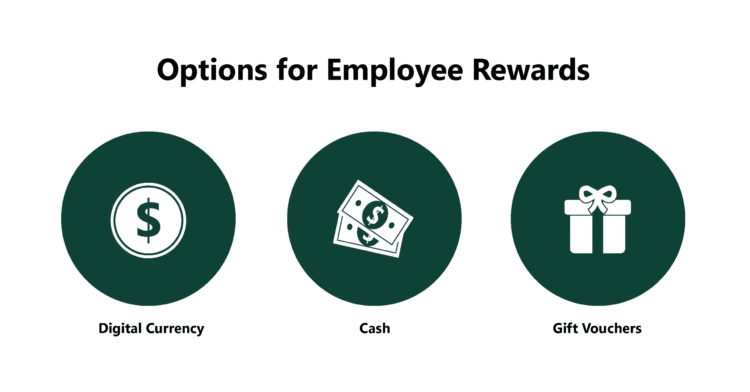1. There Is No One-Size-Fits-All Reward: The best form of employee rewards depends on factors such as industry type, employee seniority, and individual preferences.
2. Empower Employees with Choice: Offering cash, digital currency, or popular gift vouchers allows employees to choose rewards, making them more meaningful and appreciated.
3. Consider Intangible Rewards: Non-monetary rewards, such as time with top management, sponsored training, or conferences, can provide unique value and recognition.
4. Align Rewards with Employee Preferences: Understanding employees’ needs and preferences is crucial for designing effective and impactful reward programs.
Employee rewards in modern organizations have evolved over the years. Organizations have tried everything from trophies to company-branded merchandise, durables, electronics, holiday packages, gift vouchers, and even cash. What is the most effective form of employee rewards?
As you might have guessed by now, there is no single right answer to this question! The answer is ‘it depends’.
It depends on various factors, including the industry type, employee seniority level, and individual employee preferences.

Given the complexity, organizations face the daunting task of choosing the type of reward to give their employees.

However, a couple of options seem more sensible than others. Rather than figuring out what employees want, it would seem better to leave the choice to the employees themselves.
Given this, cash, digital currency, or popular gift vouchers would be the best options.

Employees can use these rewards to obtain what they want, rather than what HR or management thinks they want.
These work out far better than traditional company-branded merchandise or consumer durables.

How do intangible rewards work? Given the overuse of other kinds of rewards, it’s a good idea.
Coffee or dinner with the CEO, sponsored conferences, and training programs, etc., can be great non-monetary rewards.

We believe these types of rewards could get into the mainstream going forward.
Coupled with the social recognition from colleagues, employees would find these rewards more meaningful than others.
However, organizations need to understand the needs and preferences of their employees before deciding on the best form of employee rewards.

Lead author: Sagar Chaudhuri, the Co-Founder and CEO of HiFives. He is an HR Tech Evangelist with over 25 years of experience in both corporate and entrepreneurial settings. Previously, Sagar has held leadership roles with companies such as Genpact, Infosys, and ICICI Bank. He has an engineering degree from IIT Kharagpur and an MBA from IIM Lucknow. Connect on LinkedIn
To stay updated on the latest HiFives blogs, follow us on Twitter (@MyHiFives)